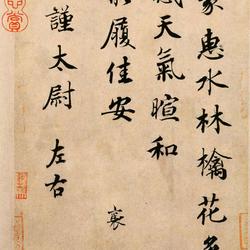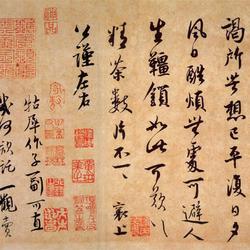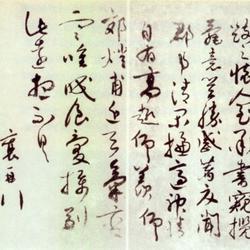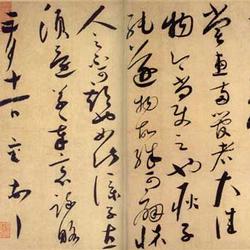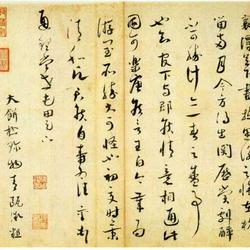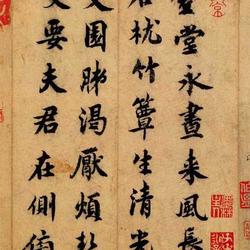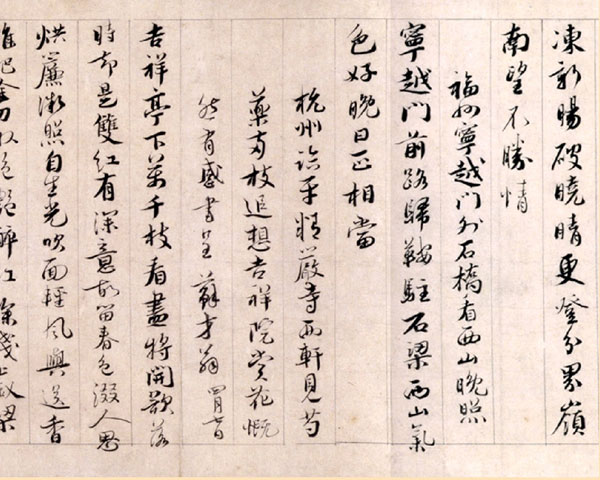
"Cai Xiang's Self-written Poems" volume, collected by the Palace Museum in Beijing, paper, three-jointed paper, 28.2cm long, 221.2cm wide, running script, 73 lines, 884 words.
At the end of the volume, there are a total of 134 inscriptions and postscripts from Song, Yuan, Ming, Qing and modern times. Collection seals: "Jia Sidao Seal", "Yue Sheng", "Jia Sidao Book Descendants Yongbaozhi", "Wu Yue Wang Book", "Guan Yanzhi Yin", "Liang Qing Standard Seal", "Jiao Lin" And the seals of the Imperial Household in Jiaqing of the Qing Dynasty.
In the second year of Emperor You of the Northern Song Dynasty (1050), Cai Xiang dismissed the transfer envoy to Fujian and summoned Xiu Dingzhu back to Bianjing, so he traveled north from Fuzhou, which lasted more than half a year. What I saw, heard, and felt along the way were all written into poems, among which are the 11 five-character and seven-character poems written in this volume. The writing time was shortly after the poem was written, when Cai Xiang was about 40 years old. Because this is a personal poem manuscript and has no intention of seeking professionalism, the writing style is elegant and smooth, and the stipples are graceful and exquisite, which fully demonstrates Cai Xiang's middle-aged, healthy and round calligraphy style and proficient skills. Zhu Wenjun in modern times praised: "This book is written in regular regular script, all of which are exquisite. Its elegance is very similar to that of Yu Yongxing, and its gentleness does not reduce Liu's advice. It is because of his ability to draw from a wide range of ideas that he has established a calligraphy school of his own."
"Coral Net", "Wu Family's Calligraphy and Painting Records", "A Spectacular Life", "The Third Collection of Shiqu Baoji", "Continued Notes on the Painting and Calligraphy of Xuanxuezhai", "Ren Yin's Summer Sales Record" and other records. It was engraved into the "Qiubitang", "Jingxuntang" and "Yuhong Jianzhen".

